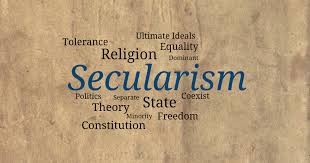
The relationship between modernization and secularism is a complex and often debated topic, especially in societies with deep-rooted religious traditi
The relationship between modernization and secularism is a complex and often debated topic, especially in societies with deep-rooted religious traditions. Modernization refers to the process of adopting new technologies, economic systems, social structures, and values, often associated with progress and development. Secularism, on the other hand, advocates for the separation of religion from government and public life, emphasizing a neutral stance on matters of faith. This article explores how modernization and secularism intersect, the challenges they pose, and the ways in which societies attempt to balance tradition and progress.
The Coexistence of Modernization and Secularism
Economic Progress: Modernization often brings economic development and improved living standards. Secularism, in this context, can promote economic growth by separating religious dogma from economic policies and encouraging entrepreneurship and innovation.
Technological Advancements: Modernization is closely linked with technological advancements, which can improve the quality of life and expand educational and economic opportunities. Secular societies tend to embrace these advancements more readily, as they prioritize scientific inquiry and innovation.
Social Progress: Modernization can lead to social progress by challenging traditional norms and advocating for gender equality, human rights, and individual freedoms. Secularism often aligns with these values, promoting a more inclusive and diverse society.
Political Stability: Secularism can contribute to political stability by fostering a sense of equality among citizens, regardless of their religious beliefs. In modernizing societies, secular governance systems can help manage the diverse religious landscape and prevent sectarian conflicts.
Challenges and Tensions
Cultural Identity: As societies modernize, there can be a concern that traditional cultural and religious identities may erode. This can lead to resistance from those who wish to preserve their cultural and religious heritage.
Religious Backlash: Some segments of the population may perceive secularism as a threat to their religious values and may resist the separation of religion from public life.
Westernization: In some cases, modernization is associated with Westernization, leading to a perception that secularism is a Western import that undermines indigenous cultures and values.
Secular Exclusivity: There can be instances where secularism is implemented in an exclusionary or discriminatory manner, stifling religious freedoms and leading to backlash from religious communities.
Balancing Tradition and Progress
Democratic Values: Striking a balance between modernization and secularism often involves upholding democratic values such as freedom of religion, speech, and association. These values allow for diverse perspectives and cultural practices to coexist.
Education and Dialogue: Promoting education and interfaith dialogue can help bridge the gap between secularism and religious traditions. It allows for mutual understanding and respect, reducing tensions.
Legal Safeguards: Implementing legal safeguards that protect religious freedom while maintaining a secular state can help address concerns about discrimination or exclusion.
Cultural Preservation: Efforts to preserve cultural and religious traditions can coexist with modernization. Many societies find ways to modernize while also cherishing their unique cultural identities.
Conclusion
The relationship between modernization and secularism is complex and multifaceted. While modernization can lead to economic, technological, and social progress, secularism can help ensure the equitable treatment of diverse religious beliefs. However, achieving a harmonious balance between tradition and progress requires careful consideration of democratic values, education, dialogue, and legal safeguards. Ultimately, societies must navigate these complexities to foster inclusive and just environments where both modernization and religious traditions can coexist and thrive.